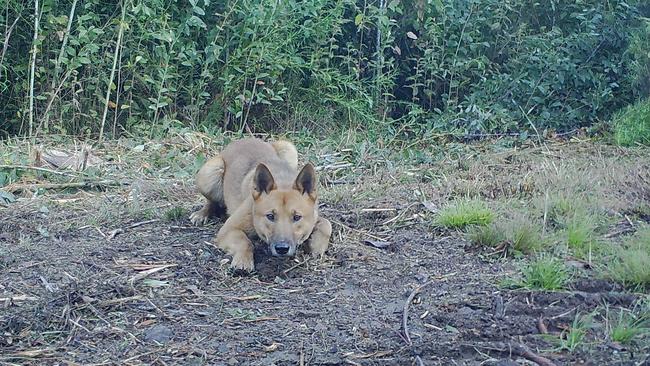Supreme Court bid to end dingo control: Animals Australia lodges writ
Animals Australia is making a Supreme Court bid to end dingo control in Eastern Victoria, delivering statewide protection.

Animals Australia is making a legal bid to end wild dog control in Eastern Victoria, lodging a writ with the Supreme Court to overturn the Allan Government’s “unprotection” order.
The September 2024 order extended wild dog control in northeast Victoria and Gippsland until January 1, 2028, allowing Victoria’s 20-odd doggers to continue baiting, trapping and shooting wild dogs on crown land within 3kms of private property boundaries.
But on November 21 Animals Australia quietly lodged a writ with the Supreme Court, arguing the government’s order would lead to 1534 dingoes being killed over the next three years, pushing the Eastern Victorian population of 2940 from being vulnerable to endangered or even critically endangered under the Fauna Act.
The writ states the dingo population estimate of 2940 was based on a 2024 ministerial brief.
Yet in January last year the Arthur Rylah Institute published the results of its camera trap
surveys, which calculated “for eastern Victoria, the total dingo population was within the range 2640 to 8800”, putting the estimated population at 4900.
National wild dog management co-ordinator Greg Mifsud said the number of wild dogs trapped under the control program has remained steady at about 500 for the past decade.
“Having roughly the same number each year, not going up or down, means the population is at carrying capacity and you’re just picking up those that spill out (onto private land),” Mr Mifsud said.
Animals Australia writ also argues the unprotection order has breached Aboriginal people’s cultural rights and links to the dingo, which the government must abide by under its own Charter of Human Rights and Responsibilities Act 2006.
However Labor Ministers have previously stated Section 7(2) of the charter allows those rights to be limited, to balance competing interests.
The government is set to defend its position, with a spokesman stating “we are striking the right balance between protecting our vulnerable dingo populations while giving farmers the ability to protect their livestock, by remaking the dingo unprotection order in eastern and north eastern Victoria until 1 January 2028.”
Victorian Farmers Federation vice-president Peter Star warned that if Animals Australia was successful “you’ll have bloody dogs running everywhere”, putting the state’s prime lamb and wool industries at risk.
The latest case is the second brought by Animals Australia against the government, after it lodged a writ in November 2023 arguing lethal control of wild and dingoes was “invalid and of no effect” and that stock losses were “minuscule”.
But by March 19 last year the case was “dismissed by consent” of both parties, just four days after Victoria’s environment and agriculture ministers agreed to protect wild dogs in the state’s northwest.
A latest summons was filed by Animals Australia’s law firm K&L Gates on December 10 for a directions hearing on February 12 or as soon afterwards as the business of the court allowed.
THE WEEKLY TIMES EDITORIAL
Eastern Victoria’s livestock producers need to realise Animals Australia will never back down in its legal bid to end wild dog control, given it has once again dragged the state government before the Supreme Court.
During the first round of legal action the Allan Government sacrificed northwest Victorian sheep producers to meet Animals Australia’s demands, declaring the Mallee’s wild dogs protected as part of a deal that led to the case being “dismissed by consent” in March last year.
Farmers and politicians might have thought that was the end of the matter, hoping that Animals Australia had accepted wild dog control could continue in Gippsland and the state’s northeast.
But here we are again, almost 12 months later, with Animals Australia demanding the Supreme Court rule the government’s three-year “unprotection” of wild dogs across the state’s east be declared invalid.
Anyone who thinks the government can easily win this case, need only look at the empty timber yards across the state’s east to understand the Supreme Court has the power to end industries.
Environment groups mounted case after case against the government-owned VicForests in the Supreme Court, calling for an end to native timber harvesting until they finally won.
It led to former Victorian Treasurer Tim Pallas to announce in May 2023 that native forest logging would come to an end in 2024, as “the courts have taken the decision out of our hands”.
Now Victoria’s sheep and wool industries are at risk of being driven out of vast swathes of the state’s east, as Animals Australia employs solicitors from one of the world’s largest law firms to run its case – K&L Gates.
Every farmer needs to start banging on local their MP’s and Parliament’s doors demanding the government mounts a strong case in defence of their future.




